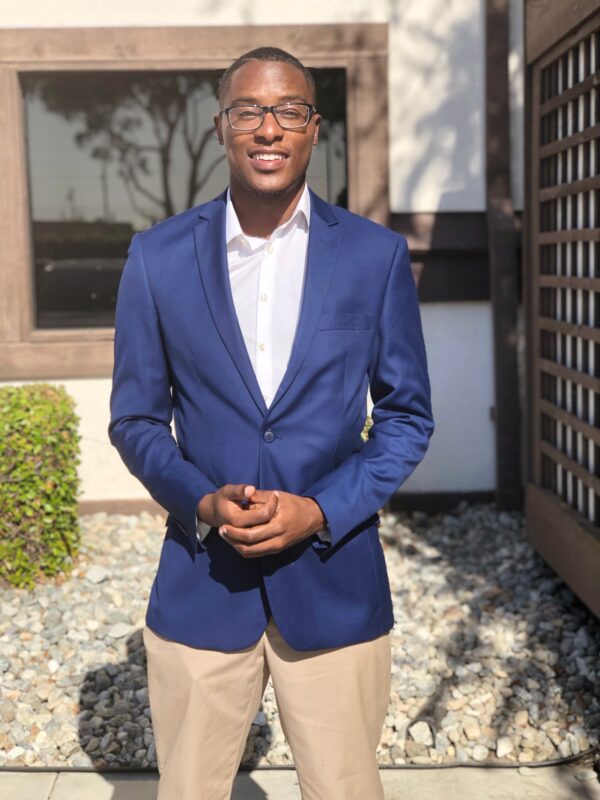De’Marcus Robinson is a UCLA graduate student in Atmospheric and Oceanic Sciences, working with Professor Tina Treude. Formerly, he attended Florida A&M University, a Historically Black College and University (HBCU), where he majored in Environmental Science with a concentration in Toxicology and Human Health. While there, he researched chemicals that could be used to make a fiber that absorb oil, a solution for cleaning up oil spills in the ocean. Doing literature reviews of past oil absorption research projects allowed him to hypothesize new approaches to use nanofibers to absorb crude oil through a process called electrospinning, a technique that transformed chemical solutions into a nanofiber fabric mesh. The mesh nanofibers were shown to be effective at oil absorption while being environmentally friendly and Robinson presented this research at NOAA conference winning third place in a poster competition.
As a current PhD student, Robinson’s research now examines biogeochemical cycles in Oxygen Minimum Zones of the ocean and seafloor, mainly in the Santa Barbara Basin. Oxygen minimum zones are caused by bacteria that consume organic matter, depleting dissolved oxygen, with detrimental impacts on many forms of marine life. By studying marine microbes in oxygen minimum zones, he hopes to better understand how these microbes in the sediment, impacts the chemical environment and microbial communities in the sediment and water column, and how they are influencing ocean health.
Robinson is interested in Science Communication where he founded BehindTheSTEAHM, a conversation that seeks to bridge the gap between experts and the community, while advocating for Social and Environmental Justice. In CDLS, he is a member of the Environmental Justice Working Group and Climate Currents. Outside of university, he is a member of Phi Beta Sigma Fraternity Inc., and likes to travel, go scuba diving, and play drums.
Amongst his aspirations, he would like to have an opportunity to work for NOAA, doing research and professional outreach and would ultimately like to become a professor at a HBCU and inspire Black students to enter marine science.

